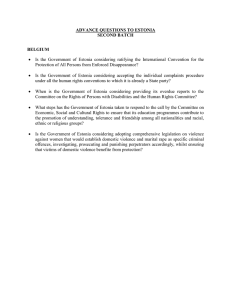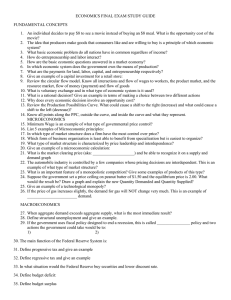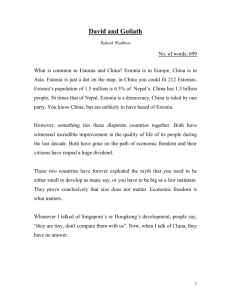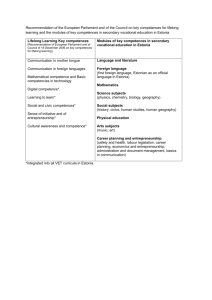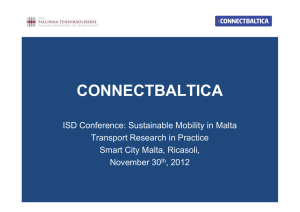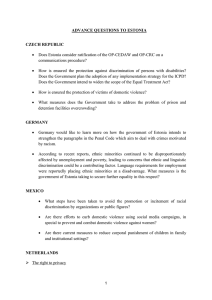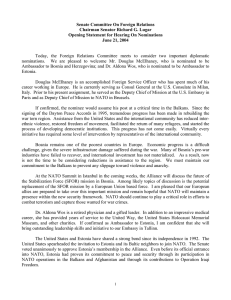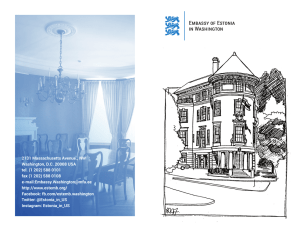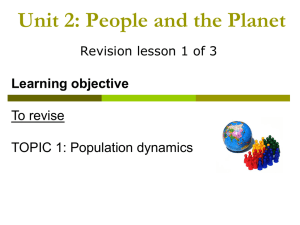"James Oates slides on Estonia"
advertisement
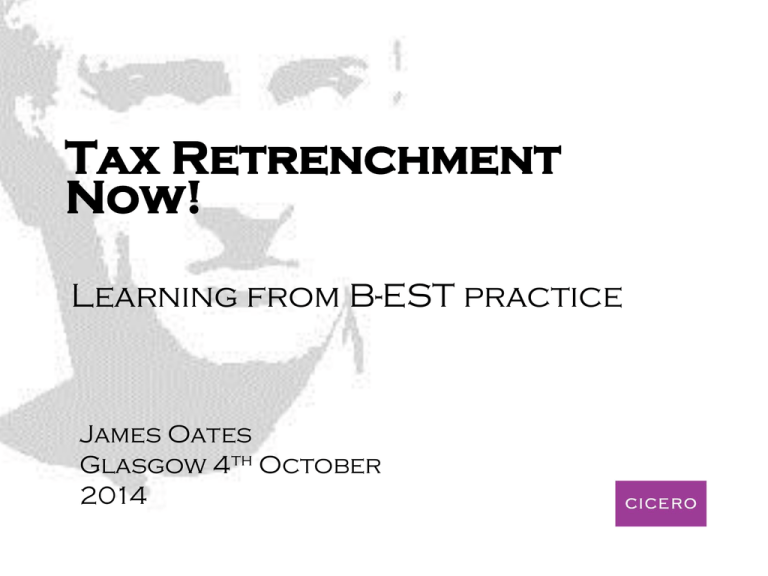
Tax Retrenchment Now! Learning from B-EST practice James Oates Glasgow 4th October 2014 Tax Efficiency • Maximise revenue with minimum distortion • “Pluck the goose to get the maximum amount of feathers with the minimum amount of hissing”- Colbert • Debate should not be about marginal rates, but tax efficiency 2 Defining the problem • The United Kingdom has a tax code in excess of 11,325 PAGES long • It is the Longest Tax Code in the world • Nominally Progressive it is actually highly Regressive • It is literally impossible to understand and has been designed that way 3 Tax competitiveness 4 Tax take as % of GDP Source: Eurostat 5 Cost of Tax Administration UK Estonia Source: OECD 6 Time to file tax return / year Hours 250 200 150 Hours 100 50 0 Estonia UK US Germany Source: World Bank 7 Esto-Tax System A Quick Overview OK So, where again? 9 Flat may not be regressive • • • • Flat Tax of 21% Basic Tax Free Rate= €144/month €355/month minimum wage (av. €1023) Limited exemptions to lift BTFR – – – – – Housing loan up to € 160 / month Pensions payments up to 210/ month Training costs Donations All not greater than 50% of total income • 99.7% of filings made Online 10 Social tax is high • Social tax rate is 33% of gross wages • Min. rate which is the basis for payment of social tax is €320 /month • Minimum social tax liability of employers is €105.60 (monthly rate x 33%) Minimum social tax liability of sole proprietors is €316.80 per quarter (€1267.20 per year) • 1% (2%) unemployment insurance 11 Entrepreneurship fostered • Corporation tax is 0% on undistributed profits, 21% on distributed profits • Takes minutes to set up limited company and open bank accounts • Expectation of entrepreneurship • High PISA rankings show quality of workforce 12 Land Tax • Collected as state level tax, but 100% of the revenue is used to fund Local Councils. • The rate is set by the Local Council within the limits of 0.12.5%. • is levied on the value of the land only, improvements are not considered. • Few exemptions- even public institutions are subject to the land value tax. Land that is the site of a church is exempt, but other land held by religious institutions is not exempt. • >90% of residences within Estonia are owner occupied compared to a rate of 67.4% in the United States. 13 Conclusions • • • • Simple & Clear tax system Low cost of administration High use of technology (land registry) Structural rather than policy-driven goals • Plenty of feathers but much less hissing 14

